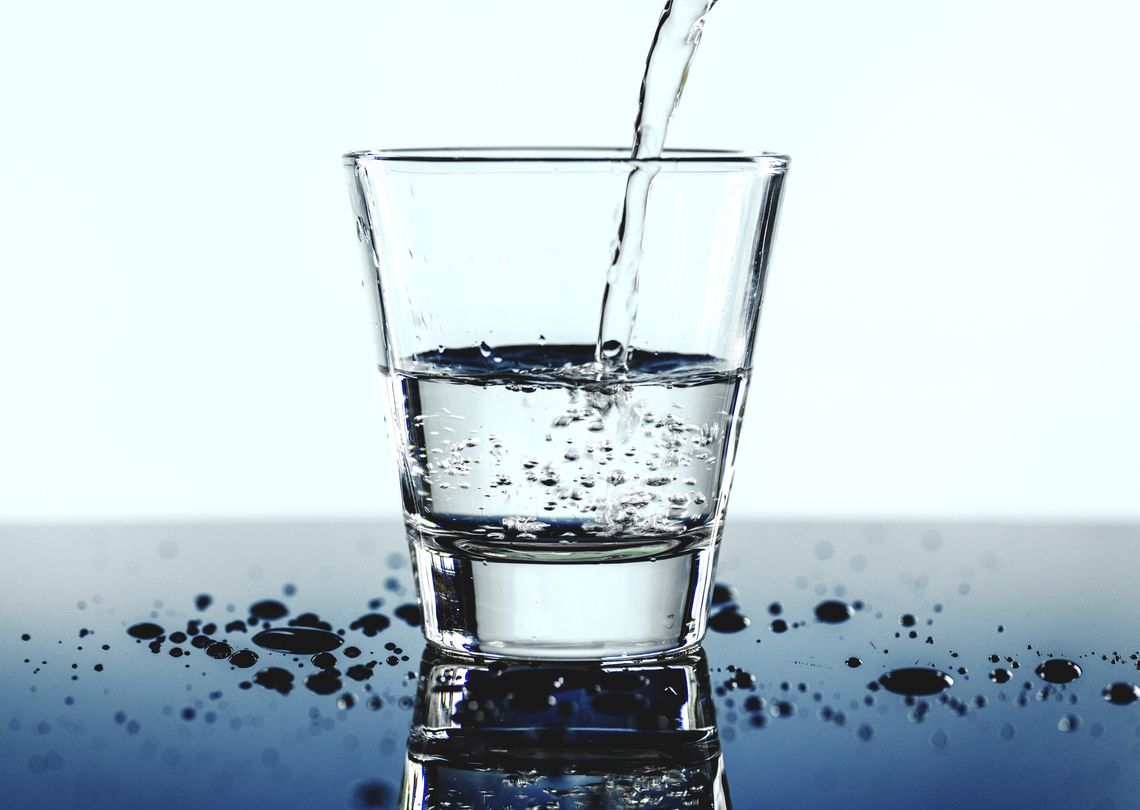You’ve heard that we all need to drink eight glasses of water a day. You have also probably seen reports that we all are living our daily lives dehydrated. Neither is true for most of us but as summer is right around the corner and Texas is known for its heat, it is important to be aware of the signs and symptoms of dehydration and how to avoid it.
Our bodies are made up mostly of water, about 75 percent. So it is critical that we maintain normal hydration as water is involved in all of our body’s metabolic machinery. Have you ever noticed as you get dehydrated you begin to feel sluggish, weak or tired? Well that is a normal reaction to losing too much water. In fact, there is a spectrum of symptoms you may experience as you progress from mild to severe dehydration.
In medicine, we typically divide dehydration into three categories. Mild dehydration is when you’ve lost 3-5 percent of your body weight in water. Moderate dehydration is a loss of 6-9 percent of your body weight. Severe dehydration is anything more than a 10 percent loss of body weight in water. For example, if you weighed 100 pounds and you lost 3 pounds of water weight, that is a three percent loss and so you would be classified as mildly dehydrated. If you lost 6 pounds of water weight you would be moderately dehydrated and if you lost 10 pounds you would be severely dehydrated. Now most people talk about feeling dehydrated long before they get to be mildly dehydrated.
The earliest sign of dehydration for most people is simply feeling thirsty. Feeling thirsty is the mechanism your body uses to alert you to drink more fluids when it detects a problem. Most people will feel thirsty before they actually become dehydrated. Not everyone experiences dehydration the exact same way though. For example, the elderly often don’t sense thirst until they have already become dehydrated and the very young often cannot verbalize to you they are feeling thirsty.
Symptoms
Mild Dehydration:
- Thirst
- Dry mouth
- Fatigue
- Headache
- Loss of appetite
- Dark urine
Moderate Dehydration:
- The previous symptoms
- Decreased urine
- Fast heart rate
- Fast breathing
- Sunken eyes
- Severe fatigue
- Tingling sensations
- Muscle cramps
- Nausea
- Decreased sweat
Severe Dehydration:
- The previous symptoms
- Low blood pressure
- Very rapid heart rate
- No sweating
- No urine output
- Mottled skin
- Dry, wrinkled skin
- Muscle spasms
- Altered mental status
- Seizures
What is the best way to treat dehydration? Honestly, the best treatment is to not get dehydrated in the first place. Try to stay hydrated throughout the day. If you know you’re about to go outside and work in the heat then pre-hydrate before you start your work and then stay hydrated throughout the day by drinking water. The best pre-hydration fluid is water. You don’t need to drink a bunch of sports drinks before a work out; you just need water. After you get going and you begin to sweat add in a drink with electrolytes. The sports drinks they sell you at the stores are all sugared up. If you can, it’s better to get the powdered drink and mix it yourself like the athletes get during their games. Fruits like tangerines, oranges and watermelon are also a great way to aid your hydration.
If you do develop mild dehydration the best treatment is oral hydration. It forces the water to be absorbed through your gut quickly and it gets dispersed evenly throughout your body. You can also drink a lot of water faster than we can give it to you in an IV solution. Once you enter moderate dehydration, it is still important to try to hydrate yourself orally but you will likely need IV fluids in a clinic or emergency room. If you become severely dehydrated we will need to give you IV fluids in the hospital where we can strictly monitor your hydration status. The best indicator of hydration status is how much urine you make and we monitor that very closely in the hospital for dehydrated patients.
How do you know when you’re hydrated? For starters, you won’t feel thirsty and you will have normal urination that has a clear to yellow color to it. There’s no need to count out eight glasses of water every day. And when people tell you to avoid tea or coffee because the caffeine acts as a diuretic and will make you dehydrated, that simply isn’t true. While it’s true that caffeine is a mild diuretic, drinking a drink like iced tea – a very Texan summer thing to do – helps you stay hydrated.
Stay safe and well hydrated this summer. Feel better y’all.
--
Dr. John Turner is a family medicine and emergency medicine doctor with 25 years of experience. He is also the owner of My Primary Care Clinic and My Emergency Room 24/7 here in Hays County. Dr. Turner may be reached at 512-667-6087.







